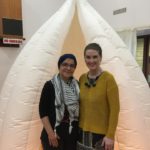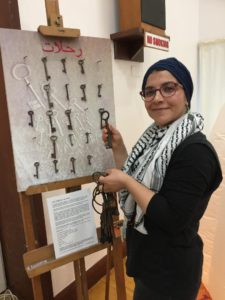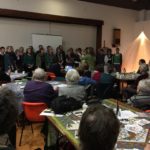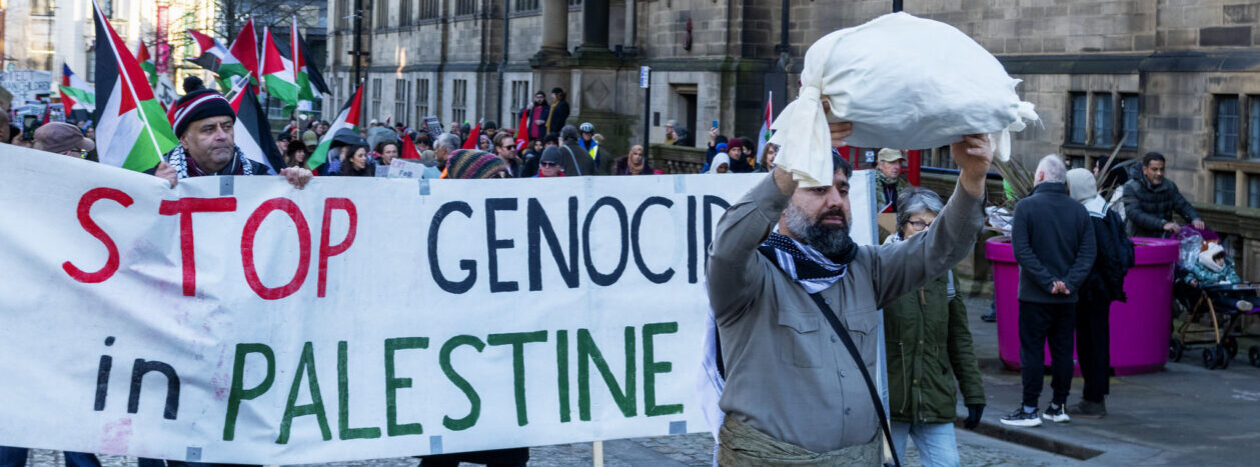On March 9th, Sheffield Palestine Women’s Scholarship Fund and Northern Women for Palestine (NWfP) jointly staged an event called “Women of Palestine: the ongoing Nakba” at the Central United Reform Church. The event was also staged in 7 other northern towns by NWfP.
The central idea was to demonstrate that the Nakba of 1948, is still happening today, as Palestinians are ethnically cleansed from their land and more and more of historic Palestine is colonised by Israel. The organisers wanted to celebrate the importance of women within the Palestinian cause, highlighting their resistance and resilience and connecting their experiences with those of women everywhere and with refugees and asylum seekers today.
So, we took our exhibition of UNRWA archive photos, accompanied by modern images into the Conversation Club for refugees which takes place every Friday afternoon in CURC. As well as photos we showed an art installation, called “Belonging”, a luminous tent created by Hilly Fletcher of the Northern Women group.

We also showed other of her pieces on the theme of loss of home and longing for return. These beautifully symbolic works were originally part of Hilly’s final submission for her art degree but became an important part of the events for International Women’s Day.
An Open House followed on from the Conversation Club where anyone could drop in to view the work and chat with organisers and guest speaker, Kholoud Al Ajarma of Aida Refugee Camp, Bethlehem.
This was followed by an evening event attended by over 130 women where a presentation on the Nakba and Naksa explained the history and current experience of loss and dispossession. Women’s voices were central: we heard testimony from 1948; the story of Nora Sub Laban, resisting the Judaization of East Jerusalem today; Sahar Awadallah spoke of her family’s experiences and Kholoud presented her transgenerational film featuring Fatima, her grandmother, Ayesha, her mother, herself and sisters, plus the new generation of child refugees.

Kholoud’s film charts life in the camp and the experiences of the women in her family and highlights their determination to Return, as is their right, to their original home of Ajjur. In the final part of the week’s events, we also showed images of the devastation left behind in her home when it was invaded by the Israeli army in the middle of the night – a common occurrence on the West Bank.

Body of Sound opened the event with two songs about women’s solidarity and resistance and the Top Shellalahs closed the event with a song written by Kate Thomas, after a visit to Palestine, called “Two Weeks”. This wonderful lyric was played in every event and exactly mirrors the narrative of the women of the Nakba.
All participants received a leaflet called “10 Things We Can Do”, a commemorative brochure on “Women of the ongoing Nakba” and a symbolic key, with a fob commemorating the Nakba. Everyone was encouraged to pledge solidarity with sisters in Palestine, especially by joining the boycott movement.
